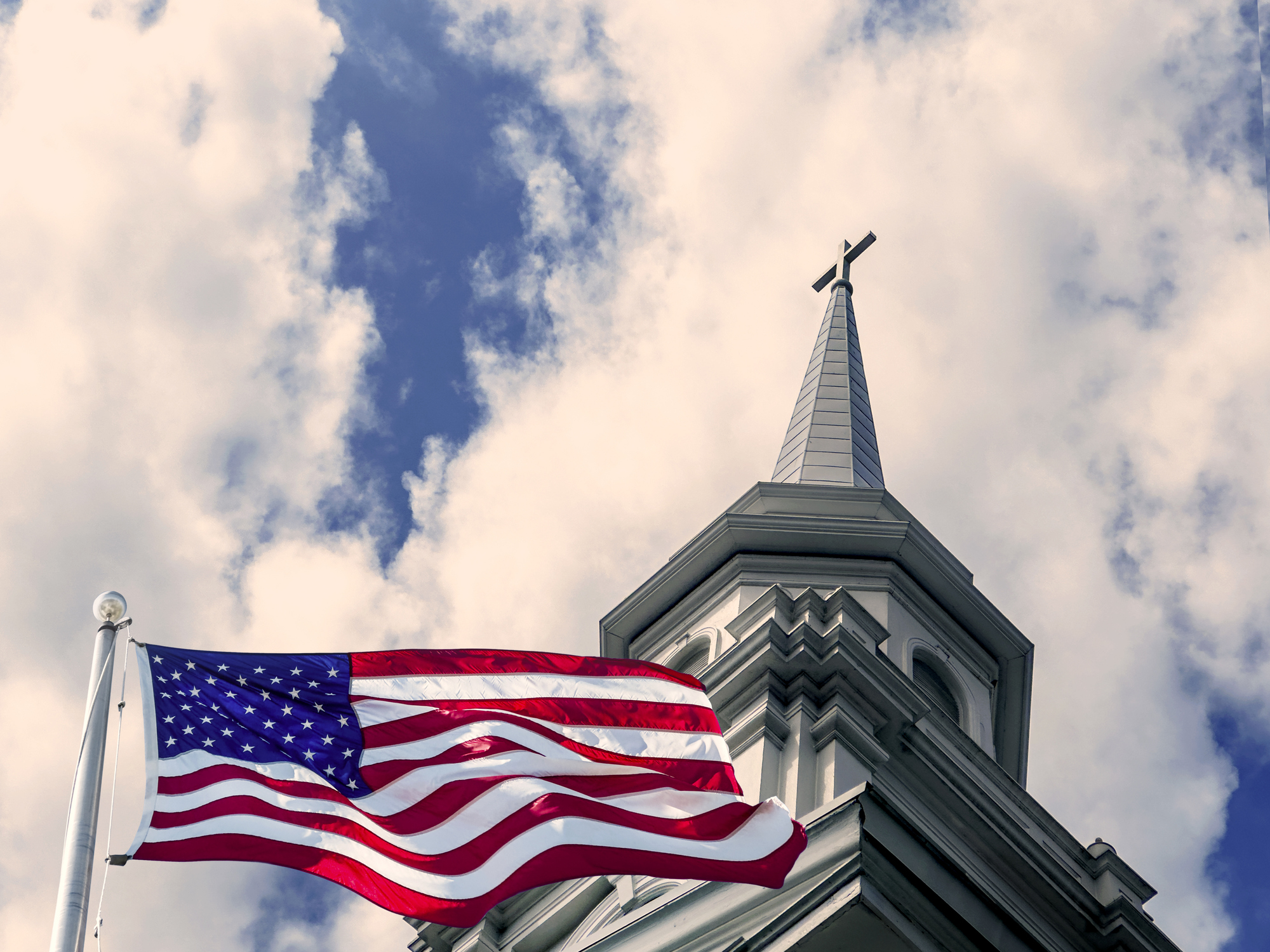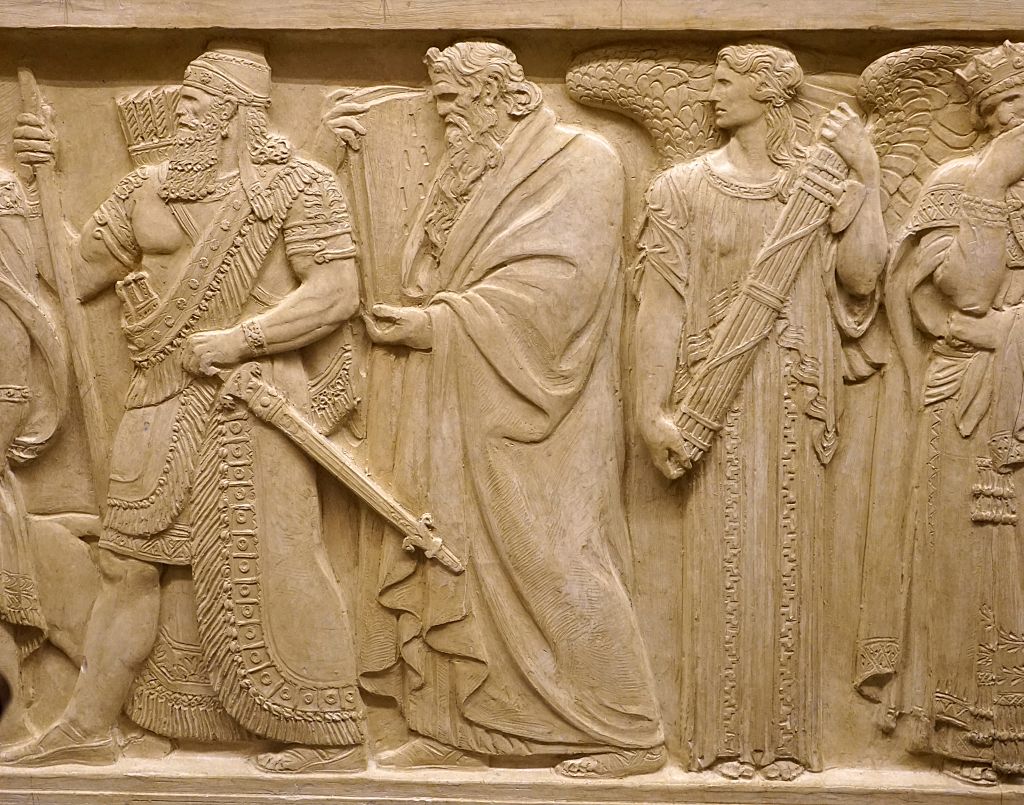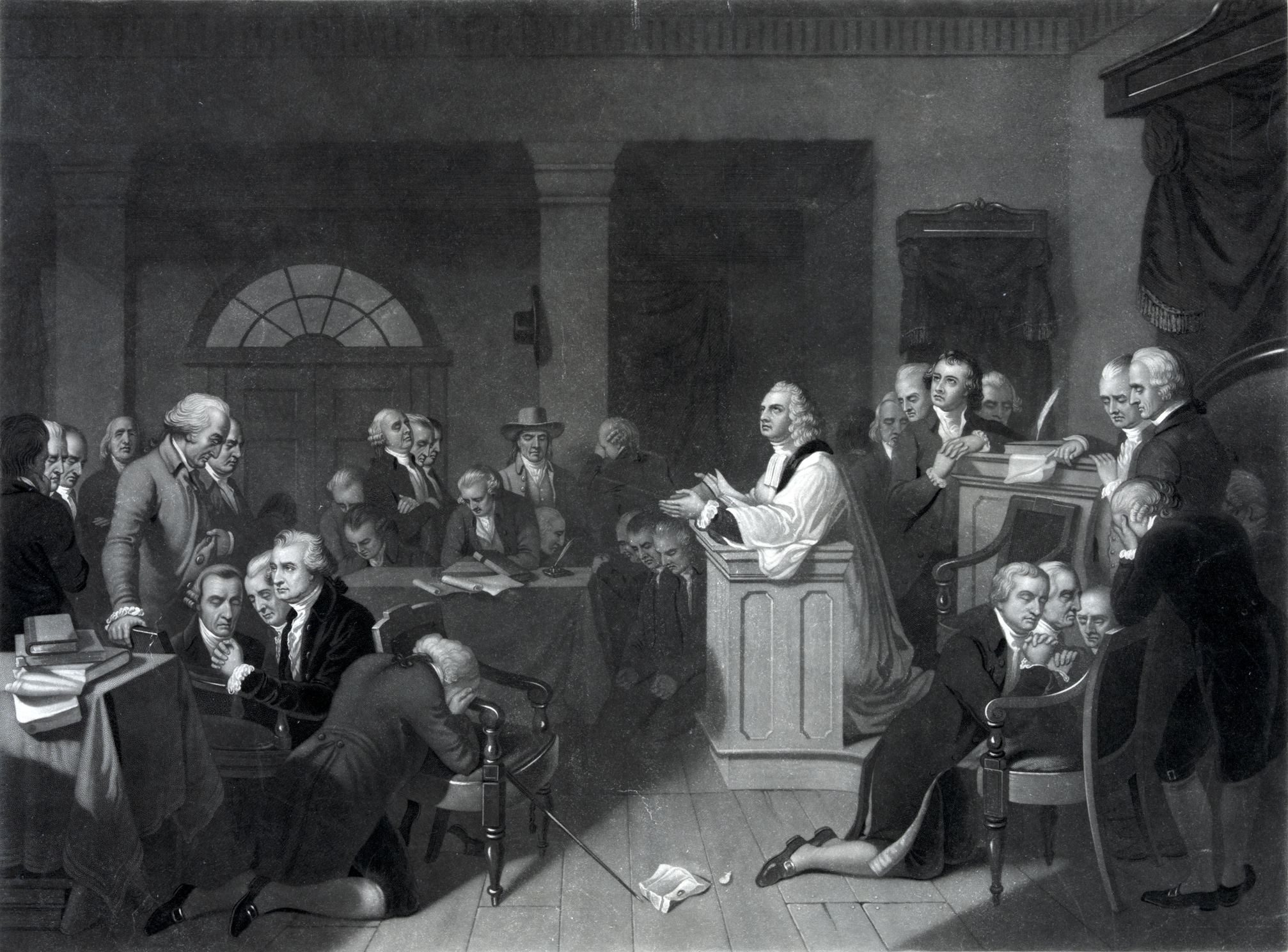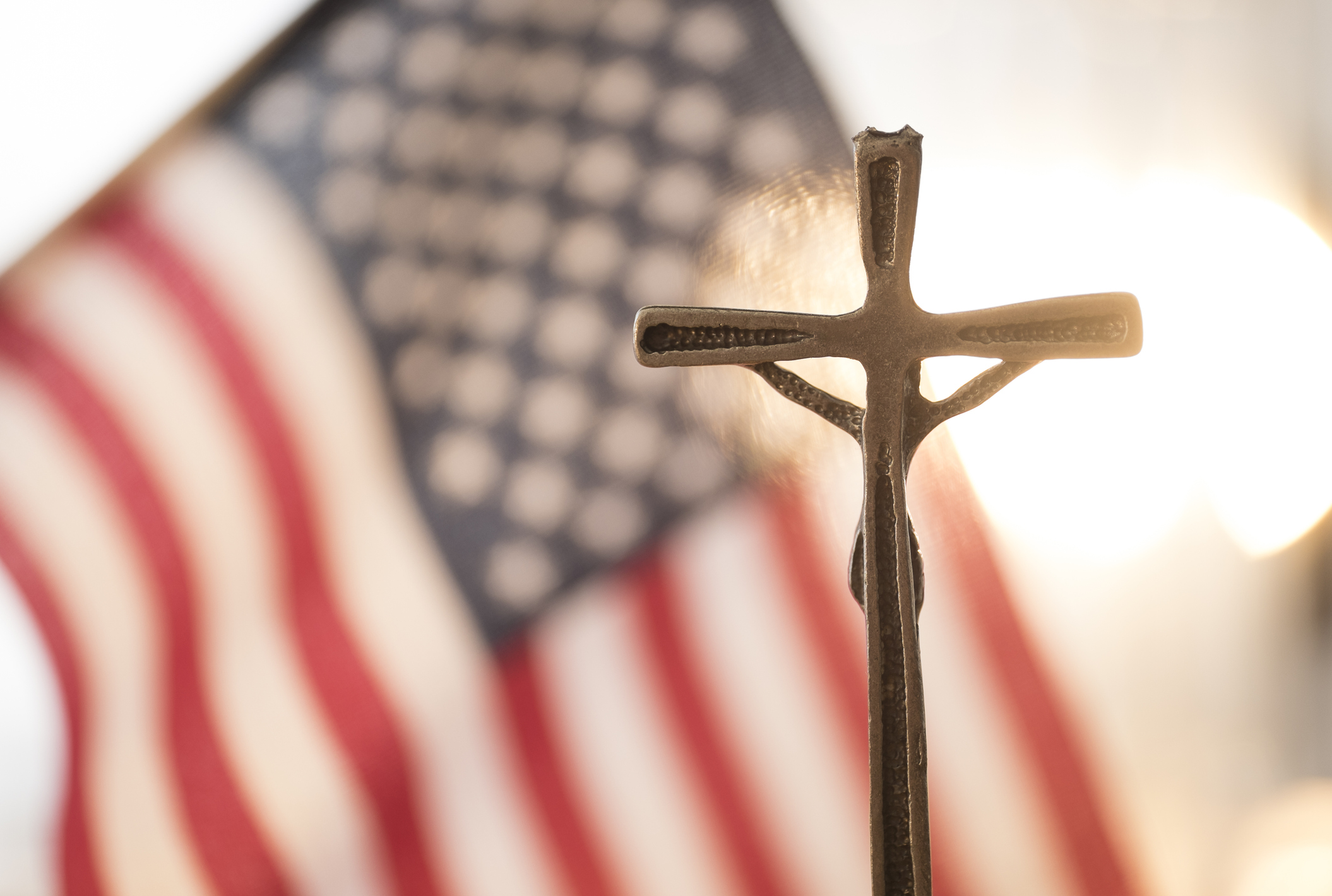It’s far more than the latest ad hoc term for everything the regime despises.
Claiming Christian Nationalism

Christians need to find the will to act.
Political ideas remain mere ideas when men lack the will to see them realized. For years, I’ve witnessed men confidently affirm the moral necessity of religious establishment, Christian culture, Christian civil rule, and Christian public institutions. But in most cases, these men actively undermine those with the will to bring any of this about or to sustain it. They tacitly indulge in the fantasy that Christianized civil society will simply materialize without anyone who strongly desires it, asserts it into existence, or resolutely draws the lines of exclusion required to maintain it. They have high principles and ends but weak and inadequate means.
This inadequacy is due not to godliness or piety but in what has been called the “post-war consensus.” As R.R. Reno has argued, we have become scared of strong, loyal attachments to particular people and places, retreating instead into patriotic invocations of universal “ideas,” which in turn are increasingly rendered morally thin in our attempt to establish common ground. We are afraid of robust, moral visions for the country. Much of Christian theologizing reflects this consensus, expressed in our “fear” or outright rejection of “earthly power.” Additionally, there is a blindness to the implicit soft power of our liberal age.
Being a Reformed Protestant, I could easily point to the Reformed tradition to refute these theological misapprehensions. But something more is needed. In the West, these issues are outgrowths of an underlying psychological malaise, tiredness, and passivity. This is why I chose to adopt the term Christian nationalism. My book, The Case for Christian Nationalism, is not novel in its underlying principles or in the Protestant theological framework on which it relies. But it is innovative with regard to emphasis. I stress throughout my book the importance of resolute action and a strong will for the good of one’s people—both their temporal and eternal good.
But what is Christian nationalism? Of course, there is no official definition, no confession or consensus document I can point to. At this point in the evolution of the term, the definition is a matter of dispute. It needs first to be defended against obvious falsehoods before it can be satisfactorily understood. Christian nationalism is not about divinely inspired constitutions, nor exclusively chosen peoples, nor conflating ancient Israel and one’s country, nor a Christian founding narrative, nor confounding church and state. Christian nationalism refers to a Christian nation being conscious of itself as such, seeking its temporal and eternal good by means of law and custom. Nationalism is resolute patriotism.
There is no need to over-theologize the concept of the Christian nation, as if it constitutes heaven on earth or an immanentized eschaton. It is simply a people-group for which Christianity is a foundational aspect of their identity, whose way of life is therefore infused with the practice and principles of the faith. In this way a Christian nation is analogous to a Christian family, a union of man and woman having or expecting children. The family, like the nation, is a natural human thing, and its principles flow from nature. But when the natural family concerns itself only with earthly things—viz., it lacks a heavenly orientation—it is an incomplete family. A complete family is one oriented to both earthly and heavenly good. As such, it is perfected by grace.
The Christian family is the natural family Christianized, ordering symbiotic life around Christian things for the good of the soul. They pray with one another in Christ; they worship together in Christ; they forgive one another in Christ; and they support one another in their pilgrimage to the Celestial City. The Christian family is a society ordered to the highest good without eliminating the lower goods. In other words, grace does not destroy what is earthly but orders the earthly to the heavenly. Furthermore, grace does not homogenize all Christian families: each retains its distinctives (e.g., family recreational activities).
Just as families are not microcosms of heavenly life, neither are nations. Grace completes the nation—not by supplying a universal “gospel culture” that homogenizes all peoples nor by collapsing the sacred and the secular. Rather, the Christian nation is the nation ordered to the goods of heavenly life without destroying its own distinctives. Grace affirms nature and completes it. This widely venerated truth is crucial for Christian nationalism.
The principles of human nature remain operative in a state of grace. These include what John Calvin referred to as man’s natural instinct and reason to form and “cherish” society. It follows that love of our own nation, people, and place compels us to act for the good of our people. Thus, our natural and very human preference and love for our countrymen is the source of resolute will which enables us to sacrifice and undertake great deeds. Having been enlightened by grace as to the means to attain heavenly life (i.e., faith in Christ), a Christian nation seeks its heavenly good. Love for our people is not limited to the good of this world; it extends to the goods of the world to come. Christian nationalism, therefore, is national action arising from a national will shaped by our natural impulse to see the good—both earthly and heavenly—realized among our own people.
Establishment and Toleration
The national will, however, cannot itself determine particular policies: it is a general will. And thus the national will acts through magistrates (or civil government), who craft, enact, and promulgate civil laws for the good of the nation. Magistrates mediate the national will for good in particular action, which must accord with the law of nature and nature’s God. The power of magistrates, though acquired by the consent of the people, is from God, and only with that power can a man compel action. The magistrate enacts or maintains a Christian body of law, which (like all bodies of law) will be filled with commands that concern human things, such as prohibitions of theft. These are not distinctively Christian, and their immediate objects are human concerns. But a Christian body of law also contains what is distinctive to Christianity, which serves in part to normalize Christianity in civil society. These might include Sabbath laws (i.e., blue laws), punishments for blasphemy, and laws ensuring Christian norms within public institutions such as schools. When such laws are present, the body of law is Christian, for it directs man to both his temporal and eternal goods.
Behind this Christianization is the will to Christianize—to claim and keep our land and our institution for Christ. The goal is the love of neighbor, who benefits from a normalized Christianity, public institutions that recognize Christ and Christian norms, and a mutual expectation of Christian manners and encouragement. Most of all, every citizen benefits from an expectation of church attendance.
Now, the instituted church is a divine order that administers sacred things for eternal life; that is, it administers the Word and Sacraments, orienting the hearts of believers to Christ and His heavenly kingdom. The local church is a local expression of the instituted church. Its principal role is service to the soul, while the civil government directly serves the body. Since the instituted church has a spiritual (not temporal) power, the civil government does not receive its temporal (or secular) power from the church, nor by the approval of the church. Nor can the church depose erring magistrates. They can excommunicate and exhort civil rulers, but they have no external, coercive authority over them. Civil society is like a host in relation to the instituted church, which (being a divine order and other-worldly in orientation) is a sort of foreign entity. Thus, the church is an object of hospitality.
The jurisdiction of government pertains only to what is external. So the magistrate cannot compel one to believe in Christ, since belief is an inward thing. As Thomas Aquinas wrote, “In the tribunal of conscience the plea is between man and God, whereas in the outward tribunal it is between man and man.” But civil power does, in principle, extend to expressed belief, since all such expression is outward. Magistrates can regulate expressed belief in order to prevent potential harm to the public. This is true in cases that cause needless disturbances in public places, such as yelling “fire” in a crowded room. However, we may extend the prevention of harm to inward harm as well. After all, the role of the magistrate is to restrain what outwardly causes harm, not merely restrain what causes outward harm. Restraining blasphemy, for example, might normalize reverence and piety, which prevents harm to the hearers’ souls and creates civil conditions of honesty and virtue.
So far my discussion concerns general principles apart from circumstances. The Protestant theological system permits a principled diversity of arrangements, especially with regard to religious toleration. According to classical Protestantism, the church is in essence an invisible kingdom, consisting of the elect who have true inward faith in Christ. Belonging to the invisible church is not a matter of outward institutional alignment. This is why even the most conservative Presbyterians and Baptists today recognize each other’s mutual faith, despite their disagreements. This opens the possibility of religious liberty, which flows not from a principle of neutrality or secularism but of Christian brotherhood. This principle can extend the rights of liberty even to those who wouldn’t affirm the principle. Thus, a Christian nation need not have a formal establishment of one denomination. Rather, the “establishment” can simply be pan-Protestantism, which can in principle extend toleration to non-Protestants and non-Christians.
Given our current situation in America, our way forward is not obvious. But we should remember that our American tradition does not preclude the normalization of Christianity in institutions and culture. Christians must look beyond simply removing corrosive ideologies from institutions (e.g., CRT, transgenderism). We must replace these errors with Christian norms. That is, we ought to make secularist and non-Christian positions the exceptions—let the atheists request the exemption. In many places in this country, what stops us is not majorities but the will of majorities to Christianize. It only takes one local jurisdiction to resist and spark a movement across the country.
Christian leaders for decades warned us of the “moral relativism” at work in the post-war West. Though many tried to fight, others resigned to it and sought to carve out a place for Christians to practice their faith and morals. But the secularist elites of the West are no longer (or never were) moral relativists; they are not interested in neutrality or granting us a place free of harassment. It is increasingly clear that we live under a sort of pagan nationalism or, perhaps, a post-Christian nationalism that demands conformity to false and degenerate social dogma. Unlike in orthodox Christianity, post-Christianity is totalitarian—it lacks a principled means to extend liberty and toleration. It is increasingly clear that in our age our options are Christian nationalism or pagan nationalism. So we must ask: which way Western man?
The American Mind presents a range of perspectives. Views are writers’ own and do not necessarily represent those of The Claremont Institute.
The American Mind is a publication of the Claremont Institute, a non-profit 501(c)(3) organization, dedicated to restoring the principles of the American Founding to their rightful, preeminent authority in our national life. Interested in supporting our work? Gifts to the Claremont Institute are tax-deductible.
Christian nationalism is a long overdue attempt to revive American’s political and cultural heritage.
It takes more than online wishcasting to win elections.
Some labels are just about chasing normal people out of the polite mainstream.
A time for choosing.
Neither liberal theologians nor online anons offer a plausible way forward.






